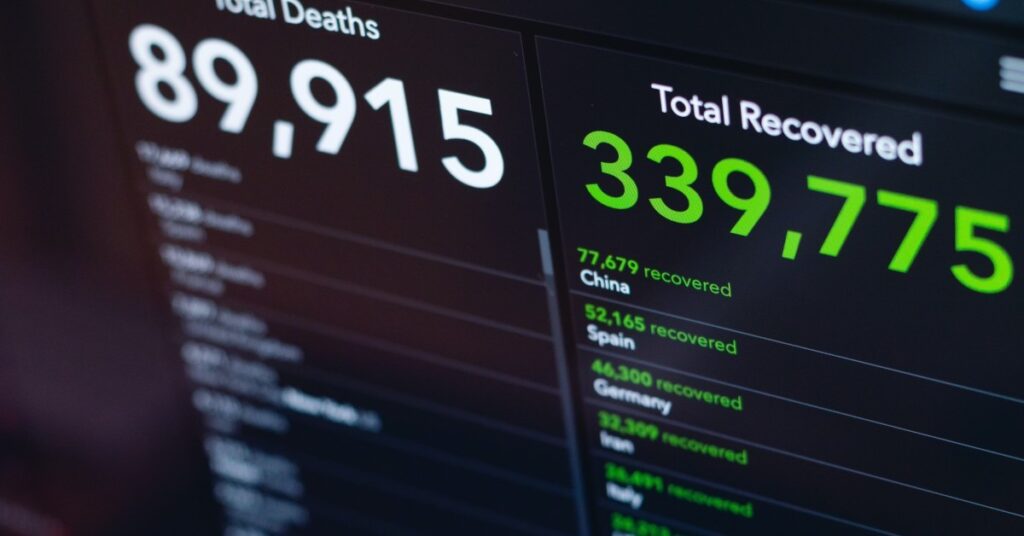
Where Do Epidemiologists Work?
Epidemiologists work in many settings, including hospitals, universities, and federal, [...]

Epidemiology rarely makes headlines unless there’s an emerging health threat. Even so, epidemiologists are always working hard behind the scenes to study diseases and deaths across populations. Their job is to identify not only how sickness spreads or clusters of diseases and injuries develop, but also to find novel ways to prevent them.
It’s a great job. Epidemiologists may not be the highest-paid public health professionals, but what they do is extraordinarily important, and so is incredibly rewarding. That may be why epidemiology is ranked fifth on US News and World Report’s list of the Best Science Jobs.
Even better, it’s not particularly hard to become an epidemiologist because the degree path is straightforward. It’s possible to launch a career in this field with a Master of Public Health (MPH) in Epidemiology—a broadly-focused degree that many schools offer to students without a public health or health sciences background. Even better, it’s possible to earn an epidemiology MPH entirely online.
In this guide to earning an MPH in Epidemiology online, we cover:
On its website, Tulane University of Louisiana‘s School of Public Health & Tropical Medicine describes the MPH in Epidemiology as “a professional degree that prepares students to serve as epidemiologists in mid-level positions in public health research or practice settings.” That’s an apt description, if a bit vague (because there are other master’s degrees epidemiologists can pursue).
Unlike a Master of Science in Epidemiology, however, which is a degree focused almost entirely on epidemiological research, the epidemiology MPH is a public health degree that happens to emphasize the application of epidemiologic data in public health planning and health services. Graduates learn to:
It’s a broadly focused degree with coursework that touches on epidemiological research methods, health policy, environmental health sciences, and behavioral science. It’s the right choice for aspiring epidemiologists who want to solve public health problems in addition to identifying and tracking them.
The people who pursue a Master of Public Health in Epidemiology come from many educational and professional backgrounds. What they have in common is that they feel driven to save lives and improve public health on a grand scale. They’re not necessarily math wizards, but they have to have a relatively strong grasp of mathematics and statistics. Programming chops can’t hurt, because modern epidemiology has a lot in common with data science. Most importantly, the students in epidemiology MPH programs tend to be curious, patient problem-solvers, and interested in medicine.
Students who successfully pursue an MPH in Epidemiology online typically have all of these characteristics, are self-motivated, and are especially committed. As one Reddit commenter put it when describing her experiences in an online MPH program: “I found that my classmates in online classes were usually older, more advanced in their careers, and took the coursework more seriously.”
Master of Public Health programs in Epidemiology often have no specific degree prerequisites for applicants. There are MPH programs designed for professionals who have experience in the health field and programs that accept applicants with no previous training or professional experience in public health or epidemiology. Some colleges and universities will accept applicants with any bachelor’s degree, provided they have taken behavioral and social science, advanced math, biology, and statistics courses.
On the other hand, high-profile schools may have stringent degree prerequisites for epidemiology MPH students. Harvard University requires applicants to its online epidemiology MPH program to meet one of these criteria:
Students in online epidemiology MPH programs take courses like:
Most programs include some type of field-based learning component or practicum. These semester-long or year-long applied experiences allow students to use the knowledge and skills they’ve learned in a real-world setting.
Be aware that not all colleges and universities specifically offer a Master of Public Health in Epidemiology. Some treat this type of epidemiology degree as an offering separate from other types of MPH, while others treat it as an MPH concentration. While that won’t typically affect the quality of the education offered, it can make it trickier to determine which schools offer an online MPH in Epidemiology. Information about this degree may be in a standalone program description on a school’s website or on the MPH program pages.
Quite a few high-ranking colleges and universities have developed epidemiology MPH programs for distance learners. There are strong online Master of Public Health in Epidemiology programs at:
Most online Master of Public Health programs cost somewhere between $30,000 and $40,000 in total tuition, but it’s possible to earn an MPH in Epidemiology online for a lot less. The following colleges and universities have some of the most affordable online MPH programs in the US:
It typically takes full-time students about two years to earn a Master of Public Health degree, whether they study online or on campus. There are also accelerated MPH programs (again, both online and offline) that take about a year to a year and a half to complete, though accelerated online MPH programs with an epidemiology concentration are relatively rare.
Some of the fastest online epidemiology MPH programs can be found at:
The vast majority of online MPH in Epidemiology programs are identical to or nearly identical to traditional on-campus programs. Students are typically taught by the same faculty and take the same courses, whether they’re sitting in a classroom or learning at home.
What’s more important, however, is that the degrees that distance learners earn are identical to those earned by students in on-campus programs. Once a student graduates from an epidemiology MPH program, there’s usually nothing on that student’s diploma or transcript to indicate that they studied online.
An online epidemiology MPH will give you the knowledge and skills you’ll need to become an epidemiologist. That might conjure up visions of working for the Centers for Disease Control or the National Institutes of Health. However, epidemiologists don’t just work in applied public health for federal, state, or local government agencies. They can also be found working in the private sector for employers like:
The reason that this degree is so versatile is that epidemiology is the general term for several different disciplines. You might become a cancer research epidemiologist, a disaster epidemiologist, a molecular epidemiologist, or an environmental health inspector, biostatistician, or healthcare infection prevention consultant after graduating from a Master of Public Health program. There are, however, some careers in epidemiology (particularly higher-level clinical or research positions) that an epidemiology MPH won’t prepare you for. Depending on your aspirations, you might need to earn a PhD in Epidemiology or a Doctor of Public Health (DrPH) in Epidemiology.
In either case, you’ll earn a good living. The BLS reports that the average epidemiologist earns about $69,660 per year and the top-earning 10 percent can earn more than $110,000. High-paying sectors for epidemiologists include scientific research and development services, where epidemiologists can earn about $99,000, and hospitals, where they can earn more than $80,000.
More importantly, you’ll have a career you can be proud of. Epidemiology forms the foundation of everything we know about public health. When diseases like Ebola and COVID-19 spread, it’s the epidemiologists of the world who come to the rescue. With an MPH in Epidemiology, you can join their ranks and potentially help save millions of lives over the course of your career.
Questions or feedback? Email editor@noodle.com

Epidemiologists work in many settings, including hospitals, universities, and federal, [...]

Becoming a pharmacist requires a good deal of schooling: a [...]

Experts predict healthcare employment will grow 13 percent from 2021 [...]

In physician assistant programs, PA students undertake first-year didactic coursework [...]
Categorized as: Epidemiology, Public Health, Nursing & Healthcare